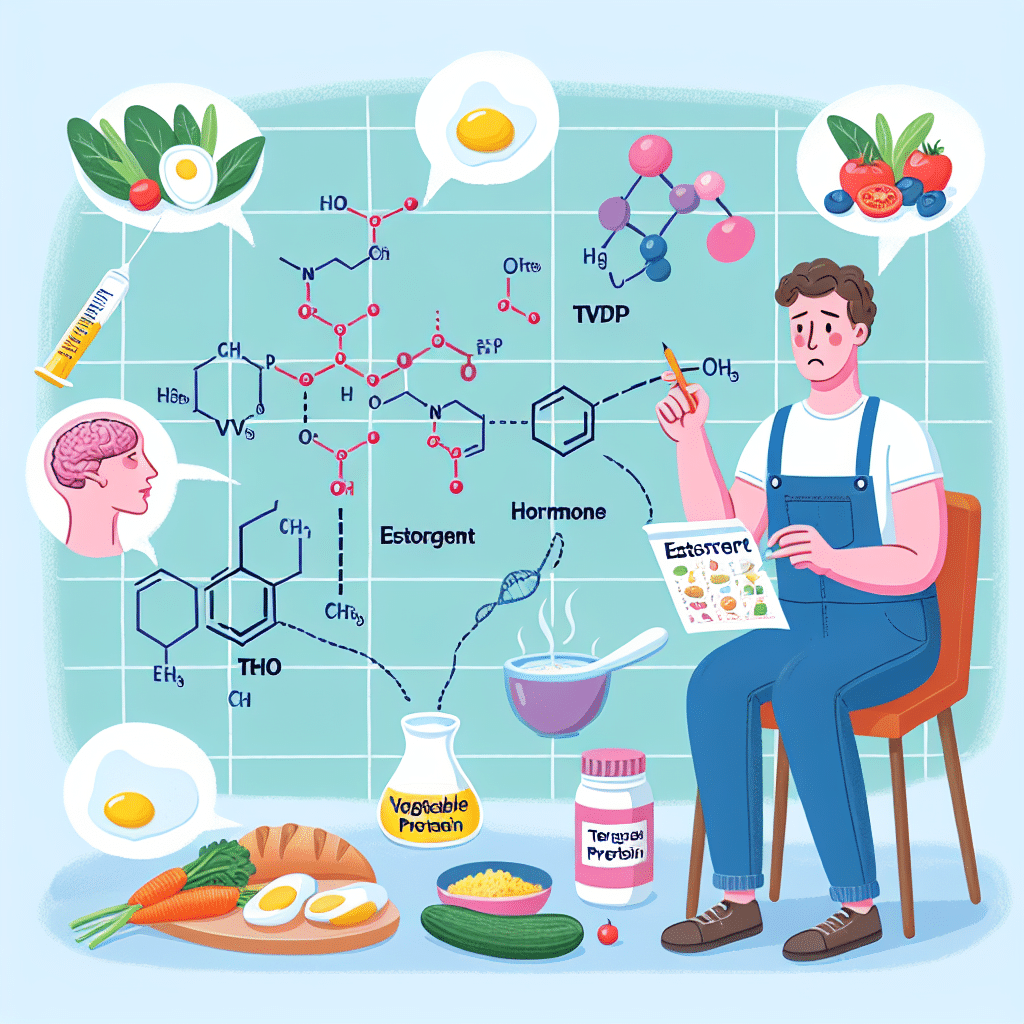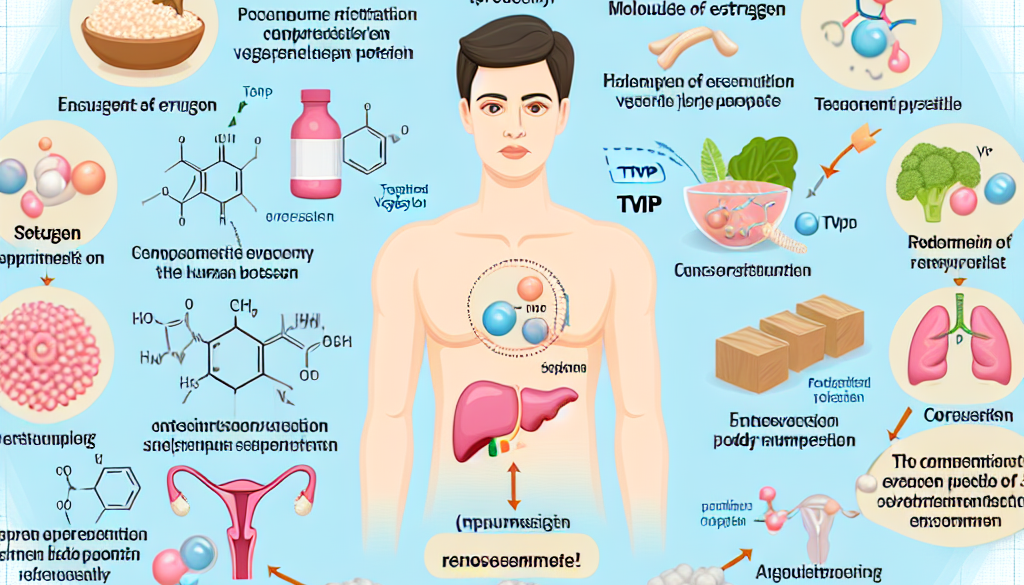Does TVP Increase Estrogen?
-
Table of Contents
- Does TVP Increase Estrogen? Unveiling the Truth Behind Soy Products
- Understanding TVP and Its Nutritional Profile
- The Estrogen-TVP Link: Phytoestrogens Explained
- How Phytoestrogens Affect the Body
- Scientific Research on Soy and Hormone Levels
- Studies Indicating Minimal Impact on Estrogen Levels
- Research on Soy’s Impact on Menopausal Symptoms
- Concerns and Considerations
- Case Studies and Population Observations
- Recommended Intake and Dietary Guidelines
- Conclusion: Balancing the Evidence
- Discover ETprotein’s High-Quality Protein Products
Does TVP Increase Estrogen? Unveiling the Truth Behind Soy Products

Textured Vegetable Protein (TVP) is a highly versatile soy product that’s become a staple in vegetarian and vegan diets. However, its consumption has raised concerns regarding its potential effects on hormone levels, particularly estrogen. This article delves into the scientific evidence to address the question: Does TVP increase estrogen in the body?
Understanding TVP and Its Nutritional Profile
Before we explore the relationship between TVP and estrogen, it’s essential to understand what TVP is and its place in our diets. Textured Vegetable Protein, also known as textured soy protein (TSP), is a defatted soy flour product that’s a by-product of extracting soybean oil. It’s often used as a meat substitute or meat extender due to its texture, which resembles that of ground meat when cooked.
- High in protein
- Low in fat
- Contains no cholesterol
- Rich in dietary fiber
- Contains essential amino acids
The Estrogen-TVP Link: Phytoestrogens Explained
Soy products like TVP contain compounds called phytoestrogens, which are plant-derived xenoestrogens that are structurally similar to the estrogen produced by the human body. The primary phytoestrogens in soy are isoflavones, which can bind to estrogen receptors in the body and exert weak estrogenic or anti-estrogenic effects.
How Phytoestrogens Affect the Body
The impact of phytoestrogens on the body can vary. They can act as weak estrogens by binding to estrogen receptors, but they can also block stronger endogenous estrogens from binding to those same receptors, potentially reducing overall estrogenic activity. The effects of phytoestrogens are complex and can depend on the individual’s existing hormone levels, the type of isoflavones, and the amount consumed.
Scientific Research on Soy and Hormone Levels
Several studies have investigated the effects of soy consumption on hormone levels, with mixed results. Here’s what the research suggests:
Studies Indicating Minimal Impact on Estrogen Levels
Many studies have found that consuming soy products, including TVP, does not significantly affect blood estrogen levels in men or women. A meta-analysis of 15 randomized controlled trials found no significant effects of soy isoflavone intake on estrogen levels in men.
Research on Soy’s Impact on Menopausal Symptoms
Some research suggests that soy isoflavones may help alleviate menopausal symptoms, such as hot flashes, by providing a mild estrogenic effect. However, the effectiveness of soy in this context remains a topic of debate.
Concerns and Considerations
While most research indicates that moderate soy consumption is safe for the general population, some studies have raised concerns about high intakes of soy isoflavones and their potential impact on hormone-sensitive conditions, such as breast cancer. However, these findings are not conclusive, and more research is needed.
Case Studies and Population Observations
Observational studies in populations with high soy intake, such as in some Asian countries, do not show elevated estrogen-related health issues. In fact, these populations often have lower rates of certain hormone-dependent cancers, suggesting a protective effect of soy.
Recommended Intake and Dietary Guidelines
For those considering incorporating TVP into their diet, it’s important to follow dietary guidelines. The American Heart Association suggests that consuming 25 grams of soy protein per day, within a diet low in saturated fat and cholesterol, may reduce the risk of heart disease. This amount is equivalent to approximately 2 to 4 servings of soy products like TVP.
Conclusion: Balancing the Evidence
In conclusion, the current body of scientific evidence suggests that consuming TVP and other soy products in moderation is unlikely to cause significant changes in estrogen levels for most people. While phytoestrogens do interact with estrogen receptors, their overall impact appears to be mild and can even be beneficial in certain contexts. As with any dietary choice, it’s important to consider individual health conditions and consult with a healthcare provider when necessary.
Discover ETprotein’s High-Quality Protein Products
If you’re looking to incorporate high-quality protein into your diet, ETprotein offers a range of organic bulk vegan proteins that cater to various dietary needs. Their products are characterized by a neutral taste, non-GMO, and allergen-free attributes, ensuring that you can enjoy the benefits of protein without compromising on quality or taste.
About ETprotein:
ETprotein, a reputable protein and L-(+)-Ergothioneine (EGT) Chinese factory manufacturer and supplier, is renowned for producing, stocking, exporting, and delivering the highest quality organic bulk vegan proteins and L-(+)-Ergothioneine. They include Organic rice protein, clear rice protein, pea protein, clear pea protein, watermelon seed protein, pumpkin seed protein, sunflower seed protein, mung bean protein, peanut protein, and L-(+)-Ergothioneine EGT Pharmaceutical grade, L-(+)-Ergothioneine EGT food grade, L-(+)-Ergothioneine EGT cosmetic grade, L-(+)-Ergothioneine EGT reference grade and L-(+)-Ergothioneine EGT standard. Their offerings, characterized by a neutral taste, non-GMO, allergen-free attributes, with L-(+)-Ergothioneine purity over 98%, 99%, cater to a diverse range of industries. They serve nutraceutical, pharmaceutical, cosmeceutical, veterinary, as well as food and beverage finished product distributors, traders, and manufacturers across Europe, USA, Canada, Australia, Thailand, Japan, Korea, Brazil, and Chile, among others.
ETprotein specialization includes exporting and delivering tailor-made protein powder and finished nutritional supplements. Their extensive product range covers sectors like Food and Beverage, Sports Nutrition, Weight Management, Dietary Supplements, Health and Wellness Products, and Infant Formula, ensuring comprehensive solutions to meet all your protein needs.
As a trusted company by leading global food and beverage brands and Fortune 500 companies, ETprotein reinforces China’s reputation in the global arena. For more information or to sample their products, please contact them and email sales(at)ETprotein.com today.












